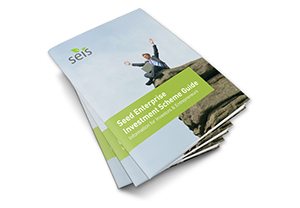British investors are increasingly looking for the chance to invest in overseas companies while collecting generous tax breaks.
Lots of overseas companies have realised that the rules of British tax incentivised investment schemes apply to them as well as British start-ups and growing businesses.
The two tax breaks that cover this are the Seed Enterprise Investment Scheme (SEIS) and the Enterprise Investment Scheme (EIS).
Both offer similar breaks – but have different investment caps and rates of relief.
- SEIS gives a 50% tax income tax refund up to a limit of £100,000 a tax year
- EIS gives the refund at 30% up to £1 million.
Other tax breaks exempt investment growth from CGT and deal with loss relief if a company fails.
Options for companies
Foreign companies can tap into these tax deals by setting up a fixed place of business in the UK or have a representative who has the authority to make decisions and sign contracts based in the UK.
The other option is for a UK company to raise capital for a subsidiary based overseas.
This option has to carefully follow complicated ownership rules and time scales.
One rule that must be observed is a foreign company with a UK subsidiary does not have a permanent place of business in Britain because the subsidiary is resident and carries on business in the country.
Often the easiest way for a SEIS\EIS company to gain pre-approval is for the foreign company to open a place of business and appoint a representative in the UK.
Foreign company due diligence
Investors have to spend more time and money researching SEIS\EIS investments involving foreign companies because there are more pitfalls that could torpedo the tax advantages of investing.
Besides the stack of rules, a UK company has to meet to gain SEIS\EIS approval from HM Revenue and Customs (HMRC), the extra regulations that affect overseas companies add another layer of due diligence complexity.
Investors also have to make doubly sure that the company’s trading status and place of business does not change for the three-year investment term otherwise HMRC could claw back any hard won tax incentives.
SEIS Guide

The guide is downloadable from SEIS.co.uk , and provides an easily digestible source of vital information for anybody who could benefit from the scheme.
